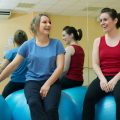Understanding Rehabilitation and Nutritional Needs
Rehabilitation is a multifaceted process aimed at restoring function, independence, and overall wellbeing following illness, injury, or surgery. Whether the journey involves recovering from a stroke, orthopaedic surgery, or managing chronic conditions, each individual’s path to recovery is unique. In the UK, rehabilitation services are tailored to meet specific patient needs, with a strong emphasis on holistic care—encompassing physical, emotional, and nutritional support.
Nutritional support plays a pivotal role in this process. The body requires additional energy and nutrients during periods of healing and recovery to repair tissues, maintain muscle mass, and boost immunity. Without adequate nutrition, the rehabilitation process can be delayed or compromised. Tailored nutritional interventions ensure that patients receive the right balance of macronutrients and micronutrients appropriate to their medical condition, activity level, and personal preferences.
For healthcare professionals and patients alike, understanding the connection between nutrition and rehabilitation outcomes is essential. Working collaboratively with dietitians and multidisciplinary teams allows for comprehensive care planning, supporting optimal recovery at every stage. This guide aims to equip both patients and professionals with practical knowledge about integrating effective nutritional strategies into rehabilitation programmes—helping you achieve your best possible health outcomes.
2. Key Nutrients for Recovery
Nutrition plays a crucial role in the recovery and rehabilitation process, providing the body with the essential building blocks it needs to heal, regain strength, and restore function. Understanding which nutrients are most important can help both patients and healthcare professionals make informed choices during rehabilitation.
Essential Nutrients and Their Roles
Below is a breakdown of the key nutrients required for optimal recovery:
| Nutrient | Main Functions in Rehabilitation | Common Food Sources (UK) |
|---|---|---|
| Protein | Supports tissue repair, muscle rebuilding, and immune function | Lean meats, fish, eggs, dairy products, beans, lentils |
| Vitamin C | Aids collagen formation and wound healing; boosts immunity | Citrus fruits, strawberries, peppers, broccoli |
| Vitamin D | Helps calcium absorption for bone health; supports muscle function | Oily fish (salmon, mackerel), eggs, fortified cereals, sunlight exposure |
| Calcium | Essential for bone strength and repair | Dairy products, leafy greens, fortified plant milks |
| Iron | Supports oxygen transport and energy production; prevents fatigue | Red meat, spinach, beans, fortified cereals |
| Zinc | Important for wound healing and immune support | Pumpkin seeds, nuts, shellfish, wholegrains |
| B Vitamins (especially B6 & B12) | Aid energy metabolism and nerve repair | Poultry, fish, wholegrains, dairy products |
| Omega-3 Fatty Acids | Reduce inflammation; may assist in muscle recovery and mental health support during rehabilitation | Mackerel, salmon, flaxseeds, walnuts |
The Importance of a Balanced Diet During Rehabilitation
A varied and balanced diet ensures that all these key nutrients are available to support each stage of recovery. While individual needs may differ—for example, someone recovering from surgery might need more protein than usual—its vital not to overlook micronutrients such as vitamins and minerals. Deficiencies can slow down healing or even lead to complications.
Tailoring Nutritional Support to Individual Needs
Nutritional requirements during rehabilitation can vary based on age, the nature of the injury or illness, physical activity level, and any pre-existing conditions. Healthcare professionals such as dietitians or nutritionists can provide personalised advice to ensure nutritional goals are met throughout recovery.
Practical Tips for Patients in the UK:
- Include a source of protein at every meal (e.g., eggs at breakfast or lentils in soups).
- Add an extra portion of fruit or vegetables daily for vitamins and minerals.
- If access to fresh food is limited (for example during hospital stays), ask about fortified foods or supplements recommended by your healthcare provider.
Ultimately, prioritising key nutrients through thoughtful food choices lays a strong foundation for successful rehabilitation outcomes.
![]()
3. Practical Strategies for Nutritional Support
Effective nutritional support is a cornerstone of successful rehabilitation, particularly in the UK where dietary habits and available resources may differ from other regions. This section provides practical guidance on meal planning, making suitable food choices, and overcoming common dietary challenges during the rehabilitation process.
Meal Planning for Rehabilitation
A well-structured meal plan can help ensure patients receive the right balance of nutrients to aid recovery. In the UK, it is important to consider local food preferences and availability. Patients and professionals should aim for a varied diet that includes:
- High-quality protein sources such as fish, lean meats, eggs, dairy products, beans, and lentils to support muscle repair.
- Wholegrain carbohydrates like oats, brown rice, wholemeal bread, and potatoes with skins for sustained energy.
- A variety of fruits and vegetables, aiming for at least five portions per day, to provide essential vitamins and minerals.
Food Choices: What Works Best?
When selecting foods, patients are encouraged to opt for items that are both nourishing and easy to prepare. For example:
- Ready-to-eat options: Low-sugar yoghurts, pre-washed salad bags, or tinned fish in spring water can be convenient for those with limited mobility.
- Fortified foods: Items such as fortified cereals or milk can help increase calorie and nutrient intake without large portion sizes.
Adapting to Common Dietary Challenges
Rehabilitation often comes with specific dietary hurdles. Here’s how to address some frequent issues seen in UK settings:
- Poor appetite: Offer small but frequent meals and snacks throughout the day. Try adding extra calories through healthy fats (e.g., olive oil or avocado) or using full-fat dairy products if appropriate.
- Swallowing difficulties (dysphagia): Consult with a speech and language therapist or dietitian. Use texture-modified diets such as pureed or soft foods, available through many NHS trusts and supermarkets.
- Cultural preferences: Embrace traditional British staples—like porridge for breakfast or soup with wholemeal bread—as well as multicultural dishes that fit individual tastes while meeting nutritional needs.
Nutritional support during rehabilitation is most effective when tailored to each patient’s needs and preferences within the context of UK resources. Collaboration between patients, carers, and healthcare professionals ensures that meal plans remain realistic, enjoyable, and conducive to recovery.
4. Multi-Disciplinary Collaboration
Successful rehabilitation is rarely the result of a single professional’s efforts. Rather, it thrives on the collective expertise and support provided by a multi-disciplinary team. In the context of nutritional support, collaboration between dietitians, healthcare professionals, patients, and their families is essential for achieving the best possible recovery outcomes.
The Importance of Teamwork in Nutritional Rehabilitation
Nutritional needs during rehabilitation are highly individualised and can change throughout the recovery process. By working together, each member of the care team brings unique insights that help tailor interventions to the patient’s medical condition, preferences, and lifestyle. This approach ensures that nutritional strategies are not only evidence-based but also practical and sustainable in everyday life.
Roles Within the Rehabilitation Team
| Team Member | Main Contributions |
|---|---|
| Dietitian | Assesses nutritional status, develops meal plans, monitors progress, provides education and support. |
| Nurse | Administers feeding regimens, observes for complications, supports daily care and communication. |
| Physiotherapist/Occupational Therapist | Coordinates nutrition with physical activity goals, encourages independence with eating and food preparation. |
| Doctor/Consultant | Oversees overall medical management, prescribes supplements or interventions as needed. |
| Patient & Family | Shares preferences and feedback, participates actively in goal setting and dietary changes. |
Benefits of Collaborative Practice
- Holistic Care: Addresses physical, emotional, and social aspects of nutrition and recovery.
- Improved Adherence: Patients feel empowered when their views are respected and included in decision-making.
- Timely Adjustments: Early identification of challenges or complications leads to prompt interventions.
- Cultural Sensitivity: Dietary recommendations can be adapted to reflect cultural traditions and personal values common in UK communities.
This collaborative framework not only maximises clinical outcomes but also fosters trust and motivation among all involved. By embracing teamwork at every stage of rehabilitation, patients are more likely to achieve their goals and maintain long-term health improvements.
5. Overcoming Barriers to Good Nutrition
Many individuals undergoing rehabilitation face significant barriers to maintaining a nutritious diet. Understanding and addressing these challenges is crucial for both patients and professionals supporting the recovery journey. Below, we explore common obstacles—such as appetite loss, financial constraints, and limited access to healthy foods—and offer practical solutions tailored to the UK context.
Appetite Loss During Rehabilitation
Loss of appetite is a frequent concern, especially after illness, surgery, or during certain treatments. This can hinder adequate intake of essential nutrients needed for healing and strength. To help stimulate appetite:
- Small, Frequent Meals: Eating little and often can be more manageable than three large meals a day.
- Enhancing Flavour: Using herbs and spices can make food more appealing without adding excess salt or sugar.
- Nutrient-Dense Snacks: Opt for snacks like yoghurt, cheese, nuts, or fortified drinks to boost calorie and protein intake.
- Professional Advice: Dietitians in the NHS or local community services can provide individualised strategies.
Financial Considerations
The cost of nutritious food can be a worry, particularly when on a reduced income during rehabilitation. Fortunately, several resources are available across the UK:
- Healthy Start Scheme: This government programme provides eligible families with vouchers for fruit, vegetables, milk, and infant formula.
- Food Banks: Organisations such as The Trussell Trust operate food banks nationwide, offering support in times of crisis.
- Supermarket Value Ranges: Many UK supermarkets offer affordable own-brand products that can form the basis of healthy meals.
- Community Initiatives: Local councils and charities may run cooking classes or meal clubs to help stretch budgets while learning new skills.
Access to Nutritious Foods
Limited mobility or living in remote areas can make accessing fresh foods challenging. Consider these UK-specific solutions:
- Meal Delivery Services: Services like Meals on Wheels or Wiltshire Farm Foods deliver balanced meals directly to your home.
- Online Grocery Shopping: Most major supermarkets offer online ordering with delivery or click-and-collect options—ideal if you find shopping in person difficult.
- Local Support Networks: Community volunteers and befriending schemes may assist with shopping or meal preparation for those unable to do so themselves.
The Importance of Seeking Help
No one should feel alone in managing nutritional challenges during rehabilitation. Healthcare professionals—including GPs, nurses, dietitians, and occupational therapists—are well-placed to advise on local resources. Charities such as Age UK and Macmillan Cancer Support also provide tailored guidance for specific conditions.
Together Towards Better Nutrition
By recognising common barriers and tapping into the wealth of support available throughout the UK, patients and professionals can work together to ensure nutrition becomes a positive part of the rehabilitation process—laying the groundwork for improved health outcomes and quality of life.
6. Monitoring Progress and Adjusting Care
Effective rehabilitation is a dynamic process that relies on careful monitoring and timely adjustments to nutritional support. Both patients and professionals play vital roles in tracking progress, identifying challenges, and ensuring ongoing improvements.
Tracking Progress: Key Indicators
Regular assessment is crucial for evaluating the effectiveness of nutritional interventions. This may involve measuring weight changes, muscle mass, energy levels, wound healing rates, and biochemical markers such as blood proteins. Keeping a food diary can also help patients and clinicians identify patterns or gaps in dietary intake.
The Importance of Communication
Open communication between the patient, dietitian, and rehabilitation team is essential. Patients should feel comfortable sharing any difficulties with eating, appetite changes, or side effects from medication. Professionals must listen attentively and provide reassurance, offering practical solutions tailored to individual needs.
Adjusting Nutritional Plans
As recovery progresses, nutritional needs may change. For example, increased physical activity might require more energy or protein. Dietitians may recommend modifying meal plans, introducing supplements, or exploring different textures to address swallowing issues or taste changes. Personalised care ensures that nutrition remains supportive at every stage.
Responding to Setbacks
It’s important to recognise that setbacks can occur during rehabilitation—these might include illness, reduced mobility, or emotional challenges affecting appetite. Promptly addressing these issues by reviewing and adapting the nutritional plan helps maintain momentum in recovery.
Ensuring Ongoing Support
Sustained improvement depends on continuous support and follow-up appointments. Scheduled reviews with healthcare professionals allow for regular re-evaluation of nutritional goals and strategies. Additionally, providing resources such as local support groups or online communities can offer further encouragement for both patients and their families.
By consistently monitoring progress and being flexible with care plans, both patients and professionals can work together to optimise recovery outcomes through effective nutritional support throughout the rehabilitation journey.


